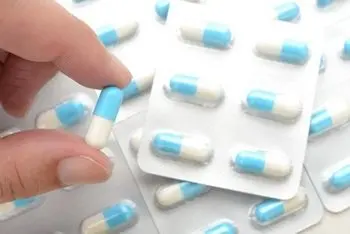Contents
Medicines for urinary incontinence

Article written by Sphere Health for PasseportSanté
Urinary incontinence, which manifests itself in uncontrolled urine leakage, should no longer cause shame and withdrawal in the person who is affected. This pathology can be treated or reduced, as soon as the person decides to consult a doctor, urologist or gynecologist. Behavioral habits to acquire, diet to monitor, new lifestyle habits to adopt, perineal rehabilitation techniques, are among the means recommended for treating incontinence. Medication may also be necessary and be an effective solution, especially in the case of urge incontinence.
Medicines for urinary incontinence
A person who suffers from urinary incontinence should not take the initiative to seek treatment without the advice of a specialist. This one, after a series of interviews and examinations intended to define the type of incontinence, is the only one able to determine the appropriate treatment.
Stress urinary incontinence, which occurs during coughing, sneezing or following physical exertion, is usually treated with rehabilitation or surgery and not with medication. Perineal rehabilitation works by strengthening the perineum and the sphincters. In case of failure, surgical treatment is indicated: most often the placement of sub urethral strips. To date, no drug is indicated for the treatment of stress urinary incontinence. Alpha-mimetics or certain serotonin reuptake inhibitors had been considered, but they were ineffective and had too many contraindications and side effects. Only taking estrogen can sometimes be associated with rehabilitation, this allows muscle strengthening.
On the other hand, drugs have been shown to be effective in treating the other two types of urinary incontinence: urge incontinence, which manifests as urine leakage preceded by an urgent need to urinate, and mixed incontinence which combines stress urinary incontinence to urge incontinence. These drugs work by blocking the uncontrolled contractions of the bladder.
Drug treatment
The bladder contracts under the effect of a molecule called acetylcholine, which attaches to receptors located on the bladder wall.
Certain drugs, such as anticholinergics, by implanting themselves on the receptors of the bladder, therefore have the role of reducing the involuntary contractions of the latter. Other drugs, due to their anti-spasmodic effect, also aim to help the bladder to relax and reduce contractions. This is the case with muscle relaxants in particular. However, considered less convincing than anticholinergics, they are used much less than the latter.
Anticholinergics: the most prescribed drugs for urinary incontinence.
With the role of “immobilizing” the receptors and reducing the contractions of the bladder as well as the pressure inside it, anticholinergics are still the most popular drugs to reduce the volume and frequency of urinary leaks. . However, they cause a number of side effects, the best known of which are: eye disorders, dry mouth, constipation, gastrointestinal disturbances, drowsiness and tachycardia. Sometimes, consciousness disorders are noted in the patient, especially the elderly.
These side effects, and particularly the dry mouth, would also be the main cause of interruption of treatment by patients. As the appearance and nature of side effects may be different depending on the patient, it is always recommended to seek the advice of your doctor when taking these drugs. To minimize the onset of side effects, some doctors recommend administration in low doses, especially in the elderly. They further advise to wait up to 4 weeks to assess the effectiveness of the drugs, and gradually change the dosage.
New drugs have appeared that are believed to be both effective and more tolerated by patients. Others can be used “in second line” to treat cases of intolerance to anticholinergics, such as anti-calciums or anti-inflammatory drugs. Other drugs such as botox initially used to treat certain neurological diseases such as multiple sclerosis have shown good results for treating urinary incontinence due to overactive bladder and is used more and more today.
All medicines for urinary incontinence should be prescribed by a doctor. This is why it is strongly recommended to consult a doctor who will refer the patient to a specialist. After researching and finding the causes of incontinence, the doctor will be able to determine whether or not the most suitable treatment requires the absorption of drugs. In most cases, the doctor favors perineal rehabilitation or recommends adopting new behaviors, changing certain eating habits. These measures are simple and constitute the best means of prevention, because with the increase in life expectancy, urinary incontinence risks, within a few years, becoming a real public health issue.









